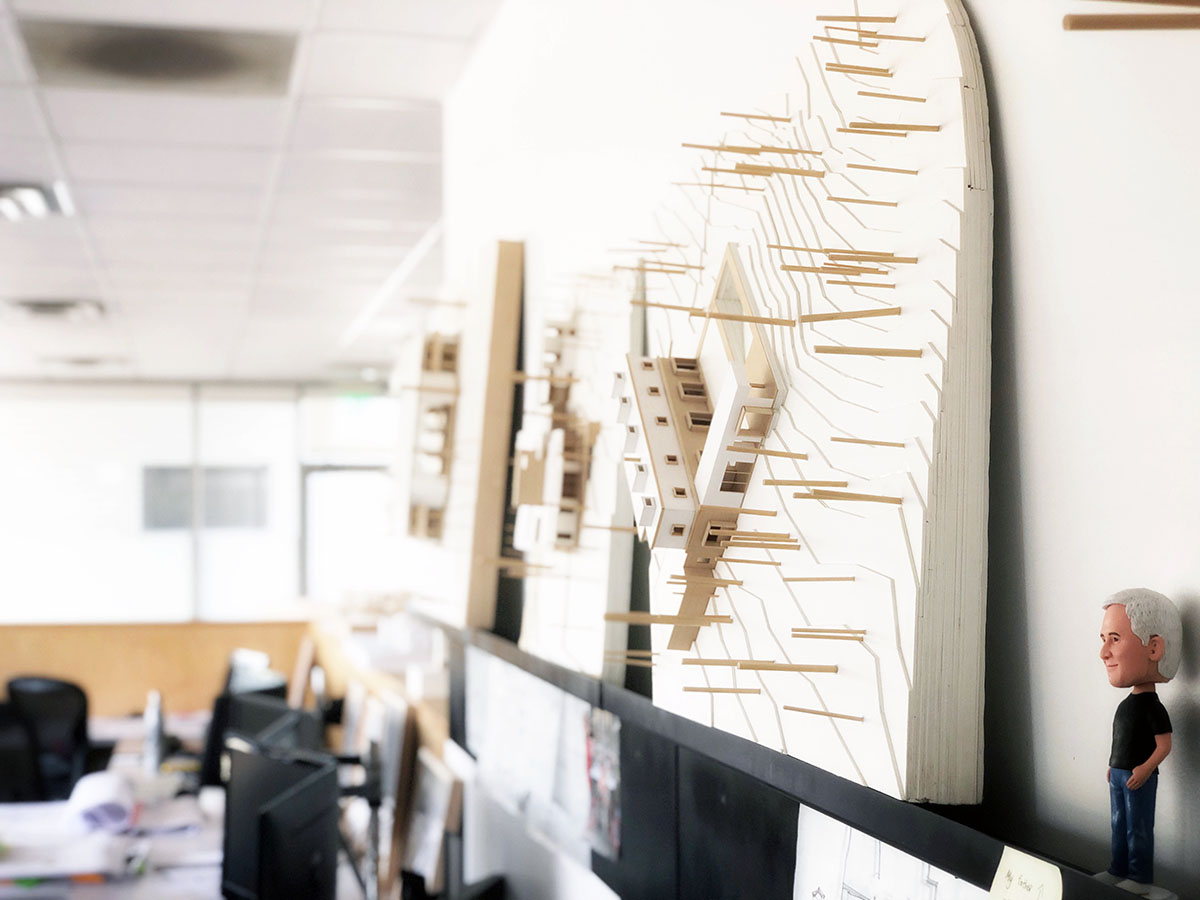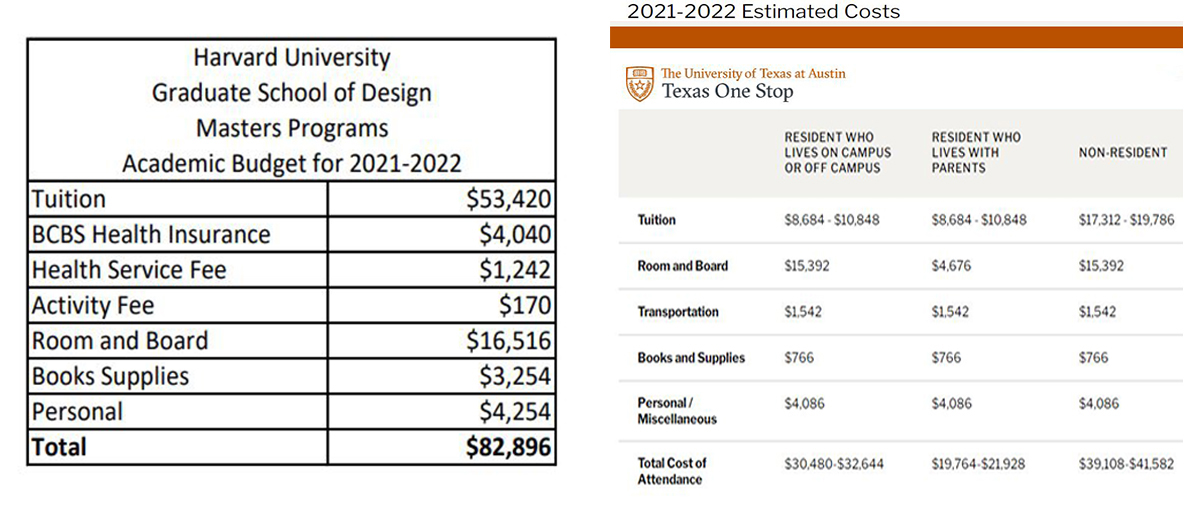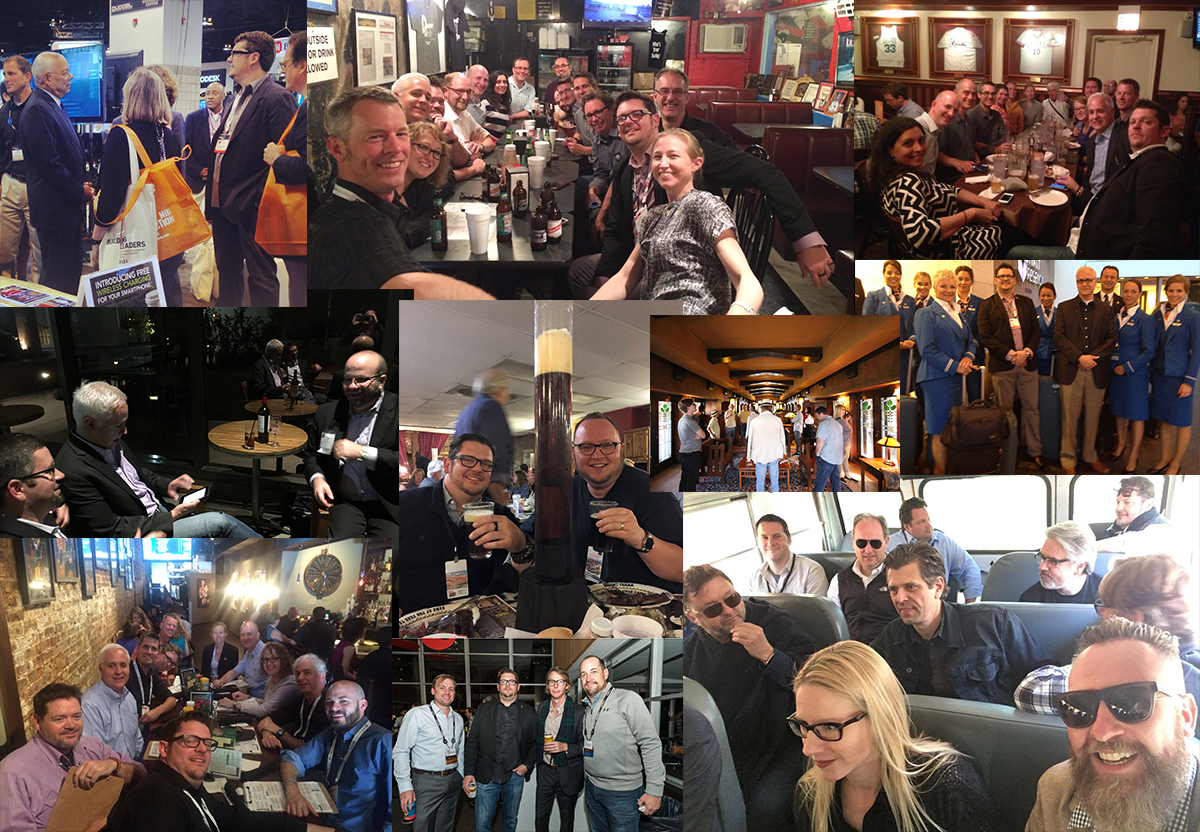Bringing work home with you, talking to your boss about a raise, what is your favorite beer … All this and more on today’s episode as Andrew and I answer your burning questions where almost nothing is off-limits is what we will be discussing today in Episode 83 “Ask the Show”
[Note: If you are reading this via email, click here to access the on-site audio player]
Podcast: Embed
Subscribe: Apple Podcasts | Spotify | Android | iHeartRadio | TuneIn
I am excited today, Andrew is excited – presumably because I haven’t actually asked him, because today is an “Ask the Show” day where we pull the curtain back and let you take control of the show. Once again we turned to social media and asked people to submit questions for us to discuss and once again you did NOT disappoint. In fact, you over-delivered because we received 88 questions and we really only have time to get into somewhere between 6 and 10. However … I am actually thinking that maybe we should figure out how to have a live show – a show where we can stay on for as long as we want, people can come and go – ask us questions in real-time and we can shoot from the hip with our answers. I also think that we would probably do it in the evening when you can come up to the house, treat it like a live cocktail party and have conversations with people. If that sounds like something you would participate in, just let me know and we’ll figure out how to make it happen
But enough of all that, let’s get into the questions!

How can one learn or gain experience in new things at a very small firm … and with no mentors? jump to 4:38
Question submitted by @cris-rajkumari – Cris Rajkumari (private account)
Andrew: At first I took this to mean a search for mentorship. So I talked about that for a bit, but in the end, it seems to be about finding some way to just make yourself try more things. They may not always be related to the task at hand, but you can certainly find ways to practice the things you want to gain experience on. Also, get involved in other organizations outside your firm that may grant you some of those opportunities your firm is lacking to provide. While there is no great answer to this question, you can certainly learn all kinds of things these days from the internet. While that may not be the best way to gain experience, it definitely cannot hurt.
Bob: This is a good question but has a fairly direct answer to it. People tend to learn by doing and you shouldn’t wait for someone to invite you to the table to gain new experiences. You have to seek out people who do what you want to do and simply watch and engage. Platforms like Instagram are a terrific resource of inspiration and you can easily find people and firms worth emulating. These days there is no shortage of examples out there and now you can pretty much learn almost anything you want from Youtube. I think back to teaching myself photoshop through giant manuals and trial and error and it boggles my mind at what I could have done with the sheer limitless video tutorials that exist – make use of them!
The other thing that we briefly talked about was finding a mentor – and this was some personal advice from me on how you might combine the power of social media along with someone you admire and how you might possibly be interested in asking them to mentor you. Just don’t go looking for someone who appears to be overly busy … even if they say yes, you probably won’t get what you need from that person.

On a ten-point scale, how often do you bring work home with you? jump to 10:40
Question submitted by @campaign.mo – Mohammed Diallo
Bob: I’d like to go higher than a 10 … like 100. I bring work home with me pretty much every single day, mostly because my daylight office hours are spent managing tasks, processes, people, clients, etc. and I typically can’t get to the actual work until after people leave. I don’t have to engage with people for some of the work that I do so that is the work that is relegated to after hours. This is also something that evolves over your career. When I was younger, and I see this in our younger staff, the younger you are, the less you work at home. You might stay at the office for longer periods from time to time but when you’re done at the office, you’re done.
Andrew: 10. I am always doing some type of work at home. This was true when I was focused on my practice and is also now true as I focus on teaching. But I think there is a congruent relationship between taking things home and the length of time in your career. The longer you are in your career, the more responsibility you gain and with that comes more work. Sometimes, that is more than you can complete in a 9 to 10 hour workday in the office. But when you are early in your career as an architect, say up until your mid-thirties, you should not be taking work home. I don’t see that as really productive or required for early-career persons. You do your work in the office and that is all. Of course, some days are longer in the office than others, but once you walk out those doors, you can leave the work until you walk back through them. As you get older and gain responsibility, the ability to leave it at the office becomes more difficult. But I suppose, if you are very diligent, you can keep some of that alive. I just would not expect it to be as consistent as earlier in your career.

Do you think the current testing accurately measures one’s ability to practice architecture? jump to 15:45
Question submitted by @iamsethshelman – Seth Shelman
Andrew: The short answer here is “NO.” The longer answer involves a lot of moving parts and whether any standardized test could accurately measure anything. But also the test is used to set a baseline, in my opinion. This means you know hopefully the bare minimum required of you as an architect. I am not certain the minimum is sufficient to go out and practice all by yourself. I will say that I learned a great deal during my examination process. It gave me valuable information and an understanding of the profession. As someone who worked in a small firm, the process exposed me to things not found in my workplace. But I am not certain that it prepared me to practice with the confidence of knowing “everything” there is to know about architecture. I think as an architect, we are continually learning throughout our career. So the exam measures a starting point for the knowledge you would need to practice architecture. Again, from my point of view, I am not certain any test could accurately assess that information. There is just too much information to be applied in the profession and it varies so much from project to project. I know the exams have changed since my day and are continuing to change, so the idea of what is being tested seems to be evolving also.
Bob: That’s a hard no from me as well. Our job varies wildly from role to role and the skill needed to successfully demonstrate competency in any of the phases of our profession simply cannot be achieved in the time period that exists by the time licensure can be obtained. Per the 2020 NCARB annual report, it takes an average of 12.7 years to complete the core requirements for licensure (a figure that is DOWN 2% from last year), and 32.6 YEARS old is the average age that someone completes all of the testing and experience requirements. These are not little numbers but with attention and dedication, you are capable of achieving licensure within 1+ or 2 years upon graduation. I have a young woman in my office about to pull off this amazing accomplishment and I think very very highly of her but she will not be ready to actually stand on her own and practice architecture yet. The skillset that got her to this point so quickly will serve her well and will most likely ensure success, but with her personality traits, she would probably be successful at anything she attempts.

How do I tell my boss that I am thinking of leaving if I don’t get a raise? jump to 31:08
Question submitted by @kaleighday – Kaleigh Day
Bob: Calmly and directly is the best way to accomplish. I can promise you that everyone planning on having this conversation will be experiencing some level of trepidation and anxiousness, but it doesn’t need to be that way. Assuming that you want to stay, I literally think that you should walk into this conversation and say “I like my job. I like being here, and I think the value I bring to the firm is not reflected in my current salary and I would appreciate a raise. ” Approaching this particular conversation with a little bit of emotion is a good thing but the question itself is quite straightforward. Most of the time when I see an issue is when someone escalates this conversation into a demand or ultimatum. Couple this with the (sometimes) disconnect between the value that the employee believes they bring versus the value that the employer believes and you have a recipe for someone packing a cardboard box with the items from their desk.
Andrew: Well you have an open and honest conversation. I will say that I have not ever in my career been in this situation, but I know how I would want it to go as an employer. Be honest and forthcoming. Do not complain or compare yourself to their employees. Just state your rationale for wanting the raise and be patient with the response. These types of decisions are not ever made in an instant, no matter what size the firm. So have the conversation, set some expectations for action, and plan for what may or may not come as a solution. If you feel you are not valued properly or told so in this conversation, it may be time to start seeking a new place of employment. None of this will be easy, but honesty is always the best approach.

Is the ROI of getting your Master’s degree from a more prestigious school worth it? jump to 39:30
Question submitted by @cameron_reese18 – Cameron Reese
Andrew: This one, in my opinion, is very dependent on what you plan on doing with your career path. If you are interested in teaching, research, or an “alternative” career path, then the choice of a “prestigious” school may give you an advantage. There are multiple factors for consideration. If, however, you are simply fulfilling the requirement necessary for you to gain licensure, then I am not in favor of choosing a high-ranking school. I say this because it is just a stepping stone on the path. I can say with a fair amount of certainty that your employer will not be paying you more at your first or second job due to your diploma from “X” graduate school. You will be making the same general pay, doing the same general tasks as any other with the same level of professional experience. While the education may be viewed as “superior”, in the end, it does not limit you from success or reaching goals. I think the main takeaway from this response, is that is it VERY dependent on your plans once you have completed that master’s degree program.
Bob: I have not personally seen or experienced the benefit of working with someone with a prestigious master’s degree – even though I will concede that these folks are highly intelligent and skilled. The reality is that if you were amazing coming out of Harvard, you would most likely be amazing coming out of any well thought of University program (assuming that the point was not to compare someplace prestigious with someplace that’s garbage). I could walk through any of the places I’ve worked and tell you who is amazing and less-than-amazing, and I couldn’t tell you who has what degree from where. In fact, Most of my formed opinions about master’s programs are formed by the person, not the institution. Meaning, “Person X” went to the Univ. of Virginia and they are amazing, therefore, the University of Virginia must be amazing, and not the other way around. However, I do believe that if you want to teach, having a degree from a highly regarded program that helps market you to their student body does provide you with additional value.

How did you know when it was time to transition from one workplace or firm to another? jump to 47:53
Question submitted by @byrd61 – Brian Byrd
Bob: This is an easy question and a short answer for me. I changed jobs a lot early in my career and 99% of the time it was because I was bored and felt like I didn’t see myself continuing down a particular path for the rest of my life. Pretty sure that if you wake up every morning with some level of dread, or you look at the job your employer has and feel like you don’t aspire to that role, it’s time to move on. Andrew and I talk a bit about a lack of opportunities, possibly a non-existent path for growth, which might be the catalyst for change. In short, if there is not a peg for you to hang your hat on, you know it and it’s time to go.
Andrew: I think that if you are unhappy, you have reached a ceiling, or you cannot see more relevant professional growth it may be time to look for another place of employment. In reality, I think the easiest answer to this is that if you are already questioning if you should leave a job, you already have your answer. I think that once you start questioning it, then it is already time to move on. You will not be able to stave off the idea of leaving no matter what counterarguments or self-convincing you can muster. I think once it is in your head, it has shown up for a reason and unless circumstances change dramatically, then it will not improve your feelings towards your current workplace. Now if the boss you despise leaves or you get transferred to some other team or location, then maybe it could be the opportunity to reevaluate. But there is a large part of me that knows once you reach the point of questioning, it is probably time.

What made you stay and be happy in the profession? jump to 53:14
Question submitted by @architectinthecity – Daria Alexandra
Bob: Every job has moments where people are unhappy, and while I can’t say being an architect makes people more or less happy, I do think that a positive attitude goes a long way. I wrote a post years ago titled “Take the High Road” and one of the items I described was:
“Don’t underestimate the power of a positive attitude. It’s amazing how easy it will become your permanent attitude”.
If you are already looking for a reason to stay in the profession because you’re miserable then maybe this isn’t the profession for you – or you need a change in scenery. I changed jobs a lot for the first 10 years of my career and it took until my mid-30’s until I found a place that provided me with enough happiness that I felt I landed where I was supposed to be. Sometimes it just takes time to find your way.
Andrew: I just like what I do. Ever since I started in the profession, I have found architecture to be my only choice. This is not to say that I am always happy or that I do not have bad patches of time. Some of those times are longer than others of course, but they all pass. I think that ebbs and flows in your career are inevitable, but the positive should always outweigh the negative. If you are that unhappy then maybe it is not the profession for you. With that said, if you are passionate and love architecture, it may be that you just need to find your place within the profession. I think that as long as you are passionate about it, there is a place for everyone in the profession. It just may not be at your current firm or even the next, but at some point, you will find your place. This is also something that may take longer than you hope. The field of architecture is so wide and varied that it can accommodate all types of passions, but also may take a while for those to line up for your individual place.

What is your favorite style of beer? jump to 57:37
Question submitted by @muddy_river_design –
Bob: I am not a beer fanatic and as a result, I am fine with most beers that are cold and in front of me. I have never once thought in my life as I reflected on a pleasant evening out drinking beers with people “Wow, I really enjoyed this particular beer”. I remember the activities typically associated with drinking beer rather than the beer itself other than when I get a nasty beer. I do not appreciate hoppy beers because 1) I don’t enjoy the flavor of licking dirty pennies and 2) can’t appreciate a beer that costs more than $5. I’m sure if I dedicated myself to the craft associated with the creation of some of these beers, I would appreciate them more … but I’m not there.
Andrew: As Bob has noted, this question is one that I could speak about for a full blog post or several. But to keep it short, I have two styles that are on the top of my list. First is a porter. This is a dark malty style of beer and is probably my favorite by just a hair. I was first introduced to this style of beer during my grad school days in Oregon. I consumed a fair amount of Black Butte Porter and thus my love was born. Next on my list as an extremely tight second is Trappist beer. This is a style of beer brewed by monks at Trappist monasteries in Belgium. Maredsous and Chimay are my favorites. It is a malty beer as well, but has quite a distinct flavor and feel. I have a dream to one day make the trek to the monasteries in Belgium that are only accessible via bicycles and spend an afternoon or two consuming Trappist beers freshly brewed and also the cheese they make as well.
There are times when I think Andrew and I are well suited to these conversations because we always seem to approach the answers from completely different perspectives. Despite the fact that I knew how Andrew would answer this question, I still thought I could get him to consider a different approach.

Would you rather? jump to 60:50
Be alone in a one-room apartment for two years – think of it like a prison cell but you can have carpet and a ceramic toilet – or you have to live with someone you absolutely detest for one year in that same room?
This question has a bit more depth to it than you might initially think, not to mention that you can add some twists to it that either make it harder or easier, to answer. At its basest level, I believe that isolation is bad for people, and even if you are with someone who does not care for you, or you for them, it is still better than being by yourself. Andrew believes that I am incapable of being by myself – factually not true – but I do prefer the company of people as opposed to being isolated. As prepared for today’s post, I did do some follow-up research to see if there was any data to support my assumption. As it turns out, there is a shocking amount of data out there on isolation.
Per the CDC:
Although it’s hard to measure social isolation and loneliness precisely, there is strong evidence that many adults aged 50 and older are socially isolated or lonely in ways that put their health at risk. Recent studies found that:
-
- Social isolation significantly increased a person’s risk of premature death from all causes, a risk that may rival those of smoking, obesity, and physical inactivity.1
- Social isolation was associated with about a 50% percent increased risk of dementia.1
- Poor social relationships (characterized by social isolation or loneliness) was associated with a 29% increased risk of heart disease and a 32% increased risk of stroke.1
- Loneliness was associated with higher rates of depression, anxiety, and suicide.
- Loneliness among heart failure patients was associated with a nearly 4 times increased risk of death, 68% increased risk of hospitalization, and 57% increased risk of emergency department visits.
You can read the entire CDC article here.
Ep 083: Ask the Show
So there you go – ten moderately burning hot questions submitted by listeners. We have quite a nice list of questions that we did not get around to answering so I do think that there will be a live “Ask the Show” live even this fall. We are doing some research now on how we can stream that even live and take and respond to question live. I know that we could do a Zoom call event but I think we have an opportunity to do something clever and I want to spend some time working it out. If you have any ideas, please feel free to share them with us. Once we get things squared away we will send out a notification (and registration if necessary) and you will be able to ask your questions, however weird or odd is totally up to you.
Cheers,

Special thanks to our sponsor BQE CORE ARCHITECT, cloud-based software for time and expense tracking, billing, and accounting. Visit bqe.com/LoaA today and receive 20% off a 12-month subscription to Core Architect
